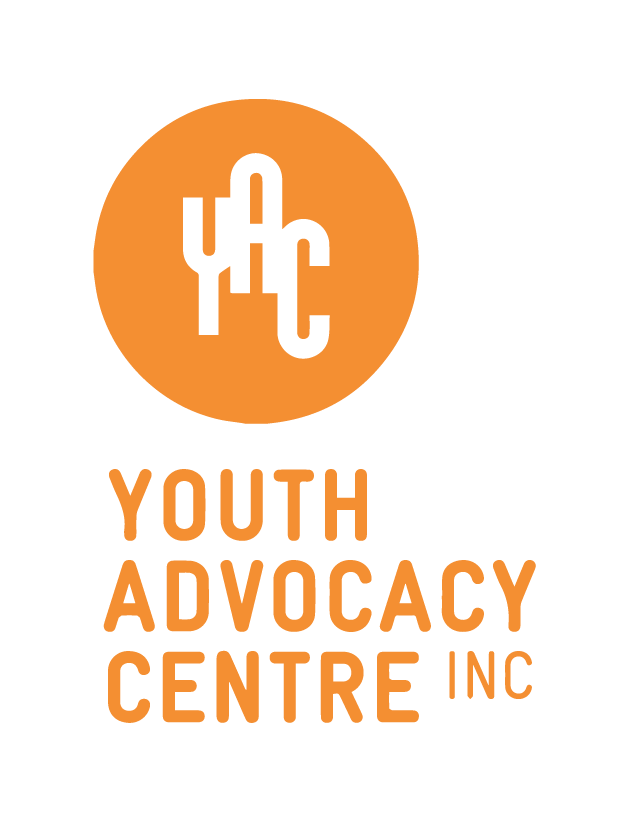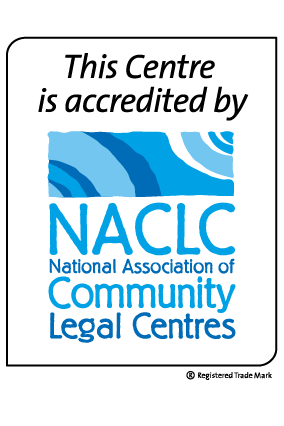Going to court
What happens when you go to court in Queensland.
Which Court?
If you are under 18 and the police believe you have broken the law and decide to take you to court, you will first go to a Childrens Court where there is a Magistrate. The paperwork the police give you will let you know where the court is.
Later, you may have your case sent to a Childrens Court Judge. If you are charged with the most serious offences like murder, or drug matters like trafficking, then your case will have to be sent to the Supreme Court.
What happens if I don’t turn up to court?
The court can issue a warrant for your arrest (this is an Order that the police find you and bring you to the court). If your case cannot be dealt with on the day that the police find you, you will probably be kept in custody (locked up) until the court can deal with your case. You may also be charged with ‘failing to appear’ (not going to court when told to). The court will then have a record that you did not turn up and this may make it harder for you to get bail (be able to live in the community while your case is being dealt with) in the future.
What are my choices when I get to court?
There should be a duty lawyer at court to help you with your case and you should ask to see them before going into court. The duty lawyer is free. You can:
- plead guilty (agree you did what the police say)
- plead not guilty (you do not agree with the police or you want them to prove you did it)
- have your case brought back to court on another day so you can first get some legal advice about what you should do.
You should get legal advice to be sure whether or not you have broken the law and get information about the consequences of your choice.
If there is no duty lawyer you can ask the court to adjourn your case (set another date or time to deal with your case) so that a lawyer can be at court with you.
What if my case isn’t wrapped up on the day?
If you plead ‘guilty’ your lawyer can often have your case finished with that day. If you plead ‘not guilty’ or you are not sure what to do, your lawyer will ask for another date for the court to consider your case. This may also happen if the police have not got their case ready.
If you were kept in custody until coming to court you will need the help of the duty lawyer to try to get bail. The duty lawyer should tell you about legal aid (free legal help from a solicitor who can also go to court with you) and give you a form to apply for legal aid. Ask for a form if the duty lawyer doesn’t give you one.
Am I allowed to have an interpreter with me in court?
Yes. If English is not the language you best understand, the court may allow an interpreter, or another person you choose to be in court to interpret for you. If there is no interpreter available at court, you can ask the court to arrange this for you.
Do my parents have to be in court?
Yes. If your parents are not there the court can decide to adjourn your case (set another date or time to deal with your case) so that the court can be sure a parent knows about your case and that they can be there. The Court can also order your parents to be there, and if they do not go, they can be fined. If your parent, guardian or foster parent was not at court when your case was heard they can ask the court that your case be heard again with them there.
Who else will be in court?
Childrens (Magistrates) Courts where young people under 18 appear on criminal matters are closed to members of the public, although the court may allow media to sit in provided that is not against the best interests of the child appearing in court.
Some people will always be allowed to be in court. They are:
- the police prosecutor
- the young person’s lawyer
- a representative of Youth Justice (a government department
- a parent or member of the young person’s family
- a person giving evidence in court (a witness)
- a person from an organisation supporting the young person if they are Aboriginal and/or Torres Strait Islander (for example a Community Justice Group)
- someone who can help the Magistrate in dealing with the specific matter or who the Magistrate thinks has a proper reason to be there (such as someone in court doing approved research)
- the victim of the crime or their representative
- the victim of a sexual offence and their support person
Generally, the media will not be able to report details about a young person’s identity when they are appearing on any criminal matter. The court can allow publication if the young person has committed a violent offence and it is particularly terrible (for example murder or attempted murder; robbery with violence in company). It is an offence for anyone to publish identifying information about a young person who has been convicted of an offence without an Order of the Court.
Can I be charged as an adult with a crime I committed when I was a child?
When you turn 18 you generally must go to an adult court. If you are 19 or over, and the police say you broke the law when you were under 18, it is most likely that you will be dealt with as an adult.
If you are not yet 19 and the police say you broke the law when you were under 18, then your case will generally go to a Childrens Court. If you agree you broke the law, or the court decides that you did, then you will be sentenced as if you were under 18.
Can police take my photograph and fingerprints?
If you are arrested by police and then taken to the police station and charged the police can usually photograph you (including photos of scars and tattoos) and take your fingerprints and other identifying particulars (things specific to you that could prove who you are).
For some offences, if the police have charged you but did not arrest you on the spot the police might ask the Childrens Court magistrate to let them take those photos, fingerprints or other identifying particulars (such as your footprints or recording of your voice or a measurement of any part of your body – but not genital or anal area, buttocks or, for a female, breasts). The police have to tell you and your parent (if they can be found) that they are going to ask the court for the order to get your identifying particulars and you or your lawyer can go to court to say why the police should not be able to get these details.
If you or your lawyer don’t go to court when the police are asking for the order the court can still give the police permission to get the particulars. The court will only make this order if the police can show that they already have some evidence (eg fingerprints) that shows an offence has been committed and they have reason to think you have committed the offence. The order will help the police do their investigation by letting them compare your particulars to the evidence they already have. If the order is made you will have to go a specific police station within 7 days so they can take your particulars. It is an offence not to go and let the police take you particulars.
If you are found not guilty the police have to destroy all of your identifying particulars – including anything they got under the order. If you pleaded guilty but the court referred you for a restorative justice process, then your particulars will be destroyed after you have done everything you said you would do under the restorative justice agreement.
If you are found guilty of the offence, but you were not arrested and fingerprinted or photographed or the police did not get an order to take any other identifying particulars about you during their investigation, the court may be able to order that your identifying particulars be taken at the end of the case.
Browse other legal topics
Who can help?
The Duty Lawyer at Court
Youth Advocacy Centre (YAC)
www.yac.net.au
3356 1002
Hub Community Legal
www.hubcommunity.org.au
3372 7677
Logan Youth & Family Legal Service
www.yfs.org.au
3826 1500
Legal Aid Queensland
www.legalaid.qld.gov.au
1300 651 188
Aboriginal & Torres Strait Islander Legal Service (24hrs 7 days a week)
www.atsils.org.au
3025 3888 or (free call) 1800 012 255
Translating & Interpreting Services (24hrs)
131 450
Youth Legal Advice Hotline (Monday – Thursday 8am – 9pm; Friday 8am – Sunday 5pm)
1800 527 527
Community Legal Centres (CLCs) see www.naclc.org.au for your nearest CLC
This sheet is intended to provide general legal information about the law in Queensland. This information is not legal advice. If you have a particular legal problem you should contact a solicitor for legal advice. Below is a list of agencies that might be able to assist you, including legal agencies.
This sheet was last reviewed and updated in April 2023. The Youth Advocacy Centre does not accept responsibility for any action or outcome because of anyone relying on the information provided.
Follow Us
Follow us on social media for information on laws, youth rights, and news.
Contact YAC
Street address: Level 4, 16 Peel Street, South Brisbane Q 4101
Mailing address: Level 4, 16 Peel Street, South Brisbane Q 4101
Tel: (07) 3356 1002
Bussiness hours: 9am - 5pm, Mon - Fri

If you need urgent assistance outside of these hours:
- Youth Legal Advice Hotline 1800 527 527 (Mon to Thurs 8am - 9pm, Friday 8am to Sunday 5pm)
- Kids Helpline 1800 551 800 (24/7, 365 days per year)
- Lifeline 13 11 14 (24/7, 365 days per year)
- Homelessness Hotline 1800 474 753 (24/7, 365 days per year)
- If you are over 18, and seeking access to Mental Health Services in Queensland, Acute Care Team on 1300 MHCALL (1300 64 2255).


